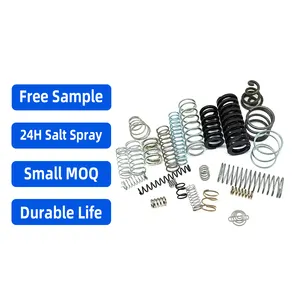Understanding Car Shock Absorbers
Car shock absorbers are critical components in vehicle suspension systems, designed to absorb and dampen the impact from road irregularities, ensuring a smoother ride. The role of a shock absorber is to maintain consistent tire contact with the road surface, providing stability and control for the driver.
Types and Mechanisms
There are various types of shock absorbers, including standard telescopic shocks, strut-type shocks, and spring seat shocks, each tailored for different vehicle models and driving conditions. The internal mechanisms can vary from hydraulic shock absorbers that use fluid to dampen the movement, to gas-filled shocks that employ a gas and fluid combination for a more responsive ride.
Materials and Construction
The construction of a car shock absorber involves robust materials such as hardened steel or aluminum for the rod, with a cylinder encasing high-quality oil or gas. The choice of materials ensures durability against external elements like dirt, dust, and road salts, which are common causes of wear and tear.
Features and Advantages
Advanced features in modern shock absorbers include adjustable damping control and rebound settings, allowing for customization according to driving preferences. The advantages of a well-functioning shock absorber system include improved vehicle handling, reduced wear on tires and suspension components, and enhanced safety through better grip and braking performance.
Applications and Suitability
Whether for compact cars, SUVs, or heavy-duty trucks, there is a range of shock absorber mounts and designs to suit various applications. Selecting the appropriate shock absorber for your vehicle is crucial, as it affects the comfort, efficiency, and safety of your driving experience.
Maintenance and Replacement
Regular maintenance checks are essential to ensure the longevity and effectiveness of shock absorbers. Signs of wear may include fluid leaks, uneven tire wear, or an increase in road noise and vibration. Timely replacement with the correct type of shock absorber is key to maintaining vehicle performance and safety.












































 浙公网安备 33010002000092号
浙公网安备 33010002000092号 浙B2-20120091-4
浙B2-20120091-4